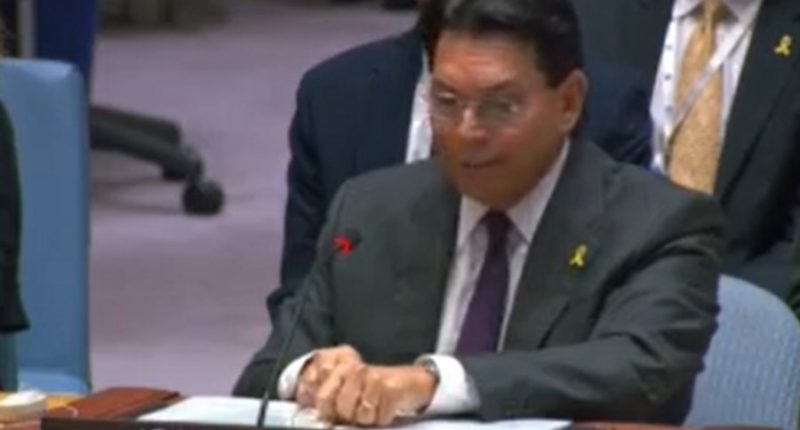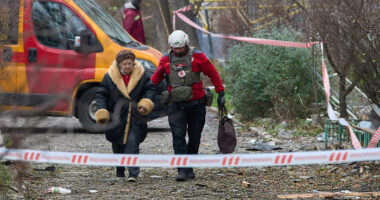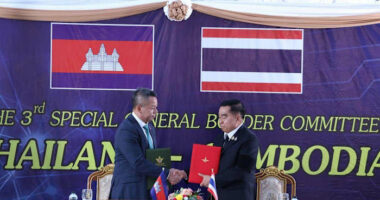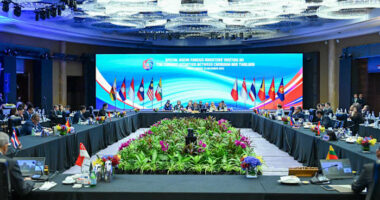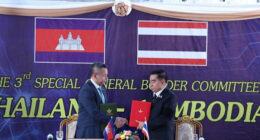Share this @internewscast.com

() Israel’s ambassador to the United Nations defended his country and the U.S. on Sunday for striking Iran as the U.N.’s Security Council held an emergency meeting following the American bombing of three Iranian nuclear sites over the weekend.
Danny Danon, Israel’s permanent representative to the U.N., said the free world gave Iran multiple opportunities to back away from developing nuclear weapons.
Israel on June 12 began striking what it said were Iranian sites where those plans were being realized, and U.S. B-2 stealth bombers struck three locations, including the Fordow nuclear stronghold, on Saturday.
“We all gave (Iran) months, we gave it years, we gave it every possible off-ramp. Iran would not move. So, it had to be moved,” Danon told the Security Council, which was considering a resolution calling for an immediate and unconditional ceasefire in the Middle East.
Danon said U.S. and Israeli strikes within Iran have focused on military targets, while Iran has more broadly sent rockets toward Israeli population centers.
“This is the moral difference between us and them,” Danon said.
Russia, China and Pakistan proposed the resolution to the 15-member Security Council.
Russian U.N. Ambassador Vassily Nebenzia invoked the memory of U.S. Secretary of State Colin Powell trying to persuade the council in 2003 that Iraqi President Saddam Hussein was an imminent danger to the world because of the country’s stockpiles of chemical and biological weapons, allegations that ultimately were not proven.
“Again, we’re being asked to believe the U.S.’ fairy tales, to once again inflict suffering on millions of people living in the Middle East. This cements our conviction that history has taught our U.S. colleagues nothing,” he said.
It was not immediately clear when the council could vote on the draft resolution. Russia, China and Pakistan have asked council members to share their comments by Monday evening. A resolution needs at least nine votes in favor and no vetoes by the U.S., France, Britain, Russia or China to pass.
The U.S. is likely to oppose the draft resolution, seen by Reuters, which also condemns attacks on Iran’s nuclear sites and facilities. The text does not name the United States or Israel.
Reuters contributed to this report.
